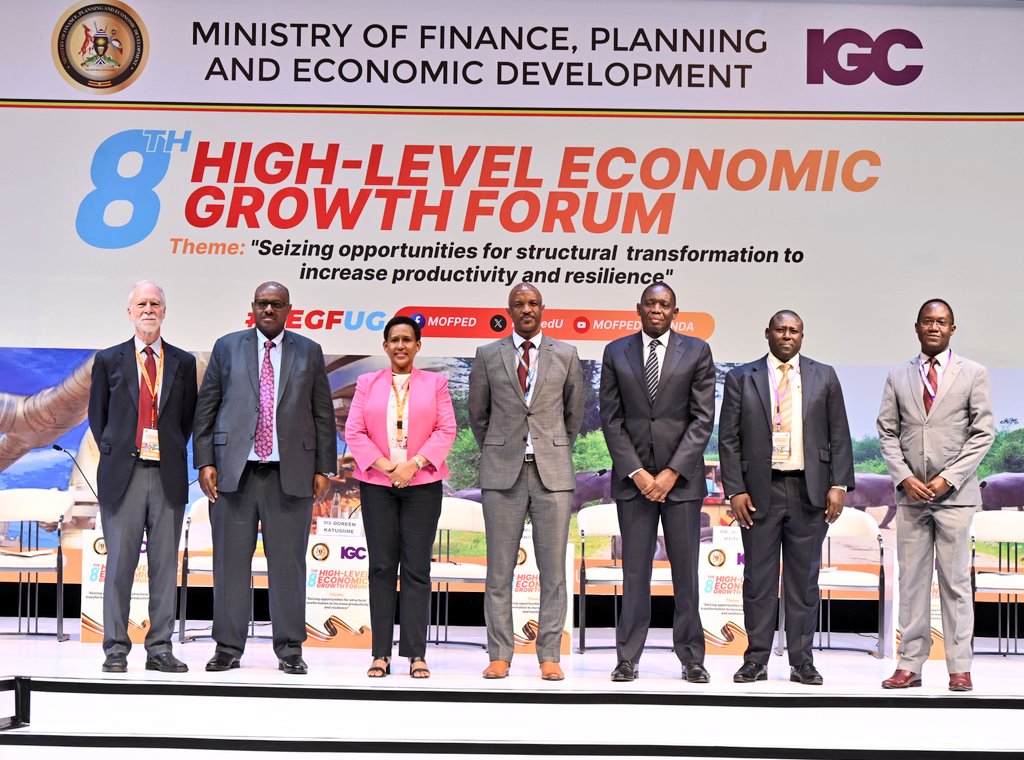The Ministry of Finance, Planning and Economic Development in partnership with the International Growth Centre (IGC) successfully hosted the 8th high level economic growth forum from 29th – 30th August 2024 at Kampala, Serena Hotel under the theme: “Seizing opportunities for structural transformation to increase productivity and resilience.’’
The forum examined how Uganda can seize the available opportunities amidst uncertainties, such as reduced capital flows, rising global interest rates, global protectionism, and geopolitical tensions as well as long term risks associated with climate change.
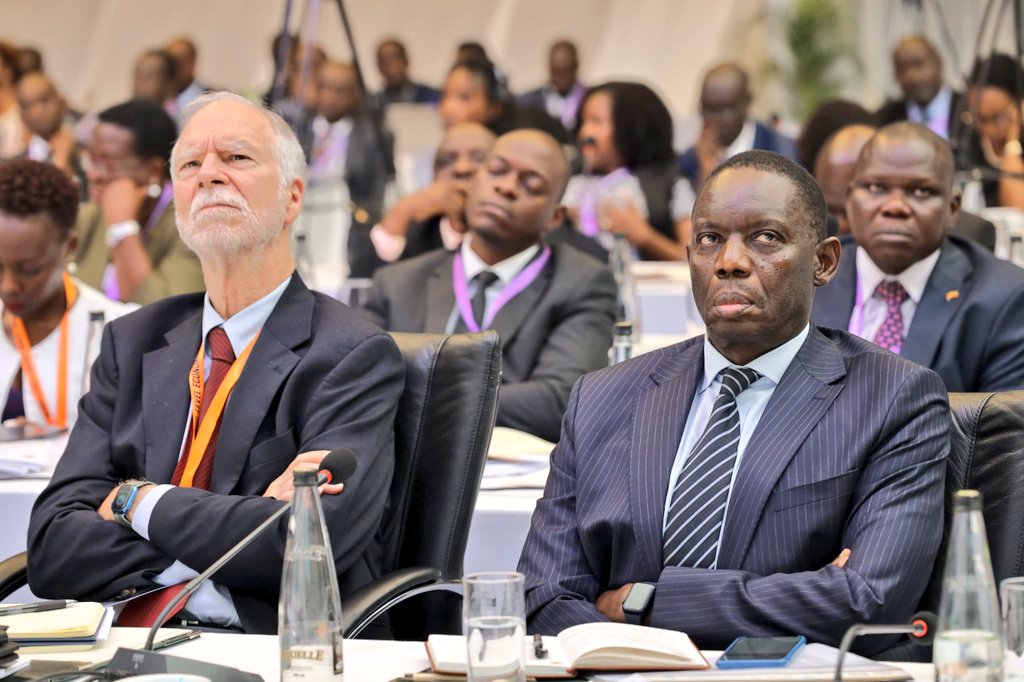
Discussions at the 8th high level economic growth forum focused on the following key strategic areas;
- Growth Strategy for Structural Transformation
- Industrial policy – Promoting Agro-industry, Manufacturing, Mining, and Exports
- Climate Change -Turning Challenges into Opportunities for Growth
- Overcoming Financing Constraints – Public and Private Savings
- Urbanization – Transforming Subsistence Farming into Urban Growth
- Developing High Productivity Services – Tourism and Business Services
The Forum provided a platform to discuss how policymakers can further crystallize these growth strategies to help Uganda achieve inclusive and sustainable long-term economic growth. The policy recommendations from this forum will feed into the national budget Strategy for FY 2025/26.
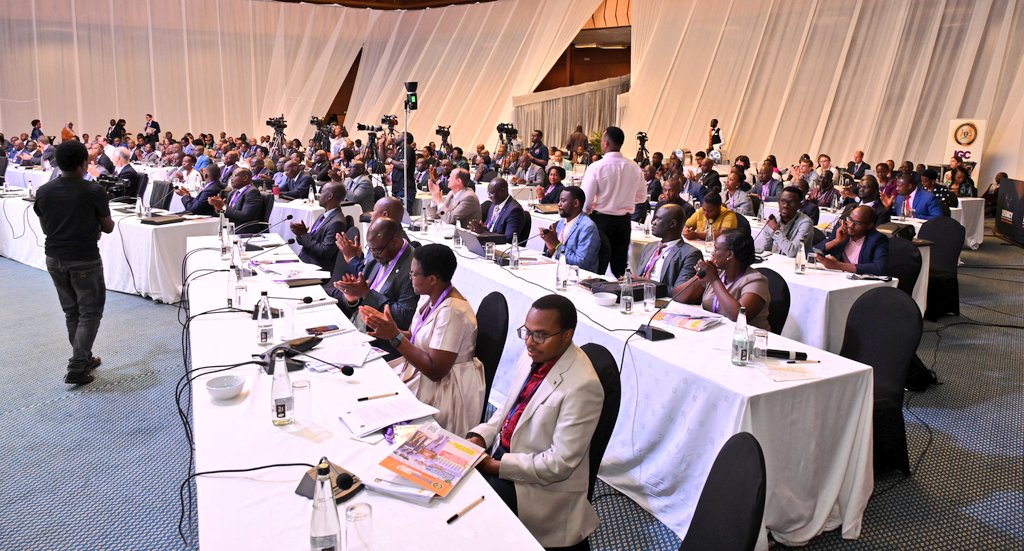
The Minister of State for General Duties, Henry Musasizi, representing Finance Minister Matia Kasaija reiterated the commitment of government to drive inclusive growth through programs such as the parish development model, adding that focus should be on areas where Uganda has comparative advantage such as agro-processing, mineral development and tourism.
The Permanent Secretary and Secretary to the Treasury (PSST), Ramathan Ggoobi said despite the global challenges such as tighter financial conditions and supply chain disruptions, Uganda’s economy demonstrated impressive resilience by achieving a growth rate of 6.0% in FY 2023/24. This performance surpasses the Sub-Saharan Africa average of 3.8% projected for 2024 and the global average of 3.2%.
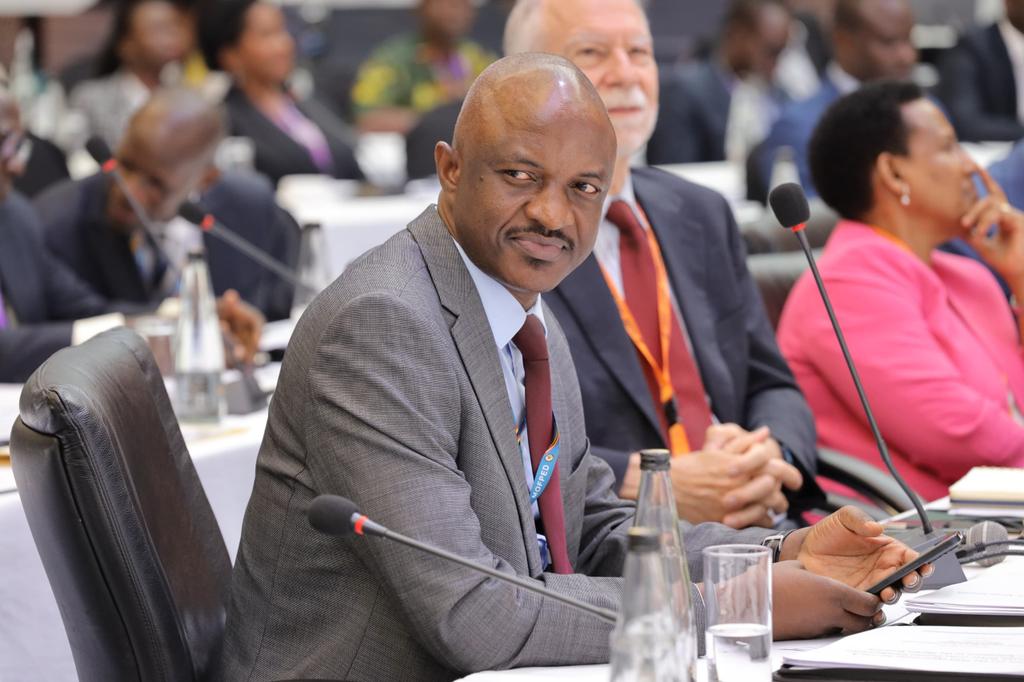
Ggoobi said Uganda’s strong economic growth has been driven by infrastructure development, investment in human capital development, deliberate government programs for agriculture and agro-industrialization such as the Parish Development Model (PDM) and a conducive macroeconomic environment.
The PSST said the Finance Ministry has outlined a strategy to grow Uganda’s economy from USD 50 billion to USD 500 billion by 2040, targeting four key sectors (ATMS): agro-industrialization, tourism, mineral development (including oil and gas), and science, technology, and innovation (STI), including ICT, research and development.
He said the plan aims to double GDP every 5 years, raise per capita GDP from USD 1,146 to USD 7,000 by FY 2039/40, increase savings from 20% to 40% of GDP by 2040, raise the share of exports in GDP from 12% to 50% and increase annual FDI inflows from USD 2.9 billion in 2022 to USD 50 billion by 2040.
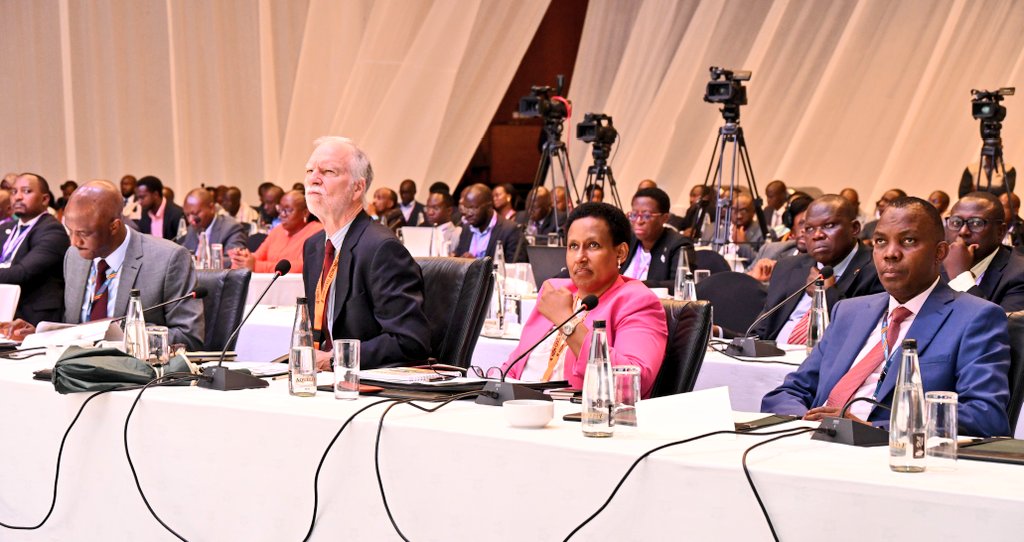
The Country Director IGC, Richard Newfarmer said exports and trade are key to productivity growth, noting that Uganda’s exports will have to grow by double digits annually to drive the aspirational goals. He said success in exporting depends on the performance of the world economy and on Uganda’s policies.
Some of the forum recommendations include;
- Putting more attention to specialised wage work away from subsistence production by creating an enabling environment to the small-scale producers.
- Leveraging the Parish Development Model to deepen credit extension to the un bankable individuals, especially in the agricultural sector where majority are employed.
- With a young and growing population, there is an opportunity to harness the demographic dividend by continuing to invest in education, health and skills development.
- Building productive capacity to take advantage of the single market for the African continent.
- Targeted investments and policy support to enhance education and training in fields such as ICT, improving digital infrastructure and expanding broadband access.
- Enhancing Uganda’s brand as a tourist destination by investing in online presence, ICT, and marketing efforts at national, regional, and international levels.
- Establish and fast track policy measures to attract climate finance through; carbon financing, debt-for-nature and climate swaps, climate risk/insurance financing, green bonds and SDG bonds.
- Enhance and boost productivity of public investment through effective implementation of the reforms to the Public Investment Management System (PIMS).
The 8th economic growth forum brought together a wide range of stakeholders including; Senior government officials, Development partners, Academia, Civil society and the Private sector.


